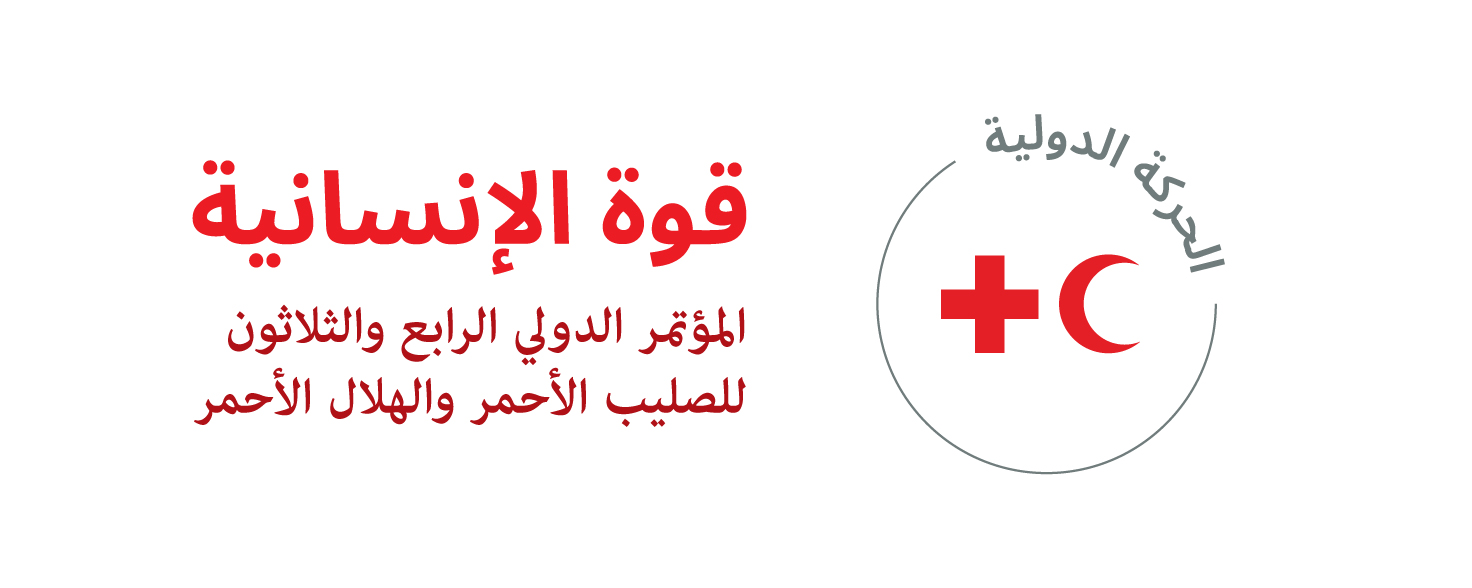أ) أهداف التعهد
Humanitarian personnel and medical personnel put their lives at risk to help those most in need. Despite their crucial life-saving work, many of these workers, in particular national and local staff, face alarming levels of violence, as well as ongoing security, safety and access challenges. These occurrences not only affect the physical and mental well-being of humanitarian personnel and medical personnel, but also translate into severely restricting the provision of assistance and protection to populations in need, in an already strained humanitarian system.
The EU and its Member States, the latter together with their joining National Red Cross Societies, in accordance with their respective competences, pledge to:
- seek ways of enhancing their support to the implementation of, and respect for the legal framework regulating humanitarian and medical work, as well as to support operational and practical measures to enhance the safety and security of humanitarian personnel and medical personnel (including volunteers), with a specific focus on the challenges faced by national and local actors.
ب) خطة العمل:
In accordance with their respective competences, the EU and its Member States, the latter together with their joining National Red Cross Societies should:
- advocate for the protection of humanitarian personnel and medical personnel in all relevant fora, and support awareness-raising activities to ensure respect for principled humanitarian action, as well as measures to counter misinformation, disinformation and hate speech linked to humanitarian assistance delivered by impartial, neutral and independent humanitarian organisations;
- continue to support data collection and analysis on attacks and other security challenges affecting humanitarian personnel and medical personnel and the persons they assist and to foster dialogue, exchanges of good practice and coordination among relevant actors. In addition, support measures that ensure accessibility of national and local actors to the available data platforms in order to improve their own security risk management and to further enhance context-specific and localised reporting systems;
- advocate to ensure adequate resources for security risk management for humanitarian personnel and medical personnel, including national and local actors;
- recognising that national and local actors are bearing the bulk of the risks in delivering humanitarian assistance and healthcare in the most hard-to-reach areas, ensure equitable and ethical partnership with national and local actors in situation of crisis;
- ensure support to humanitarian personnel and medical personnel at risk, such as emergency healthcare, mental health and psychosocial support, legal assistance, financial support, material assistance and evacuation and/or relocation of national and local personnel and their families when exposed to specific death threats, arbitrary detention or torture, regardless of their nationality, including through innovative ways to assist aid workers at risk, among others via the Protect Aid Workers initiative[1];
- continue to review national legislation, policies and procedures relevant to the provision of humanitarian assistance, as well as to the provision of healthcare and the protection of the emblem in armed conflict with a view to ensuring compliance with international law, including IHL as applicable;
- reinforce existing non-judicial and judicial mechanisms to ensure access to effective remedy following serious violations of IHL, including those affecting humanitarian personnel and medical personnel;
- develop robust national capacities – where appropriate and in accordance with national jurisdiction – to ensure independent and impartial investigations into attacks on humanitarian personnel and medical personnel and, where appropriate, prosecution of those responsible for such attacks;
- continue to transpose and operationalise well-framed humanitarian exemptions into EU restrictive measures to prevent obstacles to humanitarian action in line with UNSCR 2664 (2022);
- support training on the relevant legal framework, including IHL rules as applicable, on the protection of civilians in armed conflicts, the provision of healthcare and humanitarian assistance, as well as on the rights and responsibilities of humanitarian personnel and medical personnel;
- support States and non-state actors in implementing or reinforcing context-specific measures to enhance the physical safety of humanitarian personnel and objects as well as medical personnel, facilities and transports.
ج) مؤشرات قياس التقدم المحرز
–
د) الآثار المترتبة على الموارد:
–



